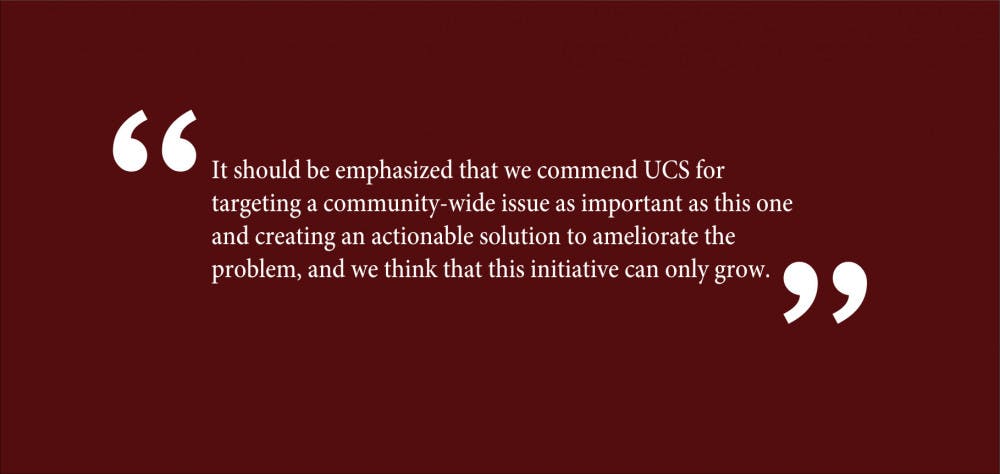On Dec. 18, the Undergraduate Council of Students announced the launch of the new Student and Employee Accessibility Services reporting system via email to the student body. This system will allow University community members to report accessibility concerns around campus more readily by consolidating the reporting to one entity, The Herald previously reported. A culmination of collaborative work between SEAS and UCS Chair of Student Wellness Shivani Nishar ’20, the new development represents a pivotal opportunity to create a more equitable campus and increase community involvement regarding the issue of accessibility at the University.
The new Google form allows students and fellow University community members to indicate barriers such as nonfunctional automatic door openers, snow berms that block access to pathways or difficulties with requesting academic accommodations. Though the form specifies that it is designed for “community members working with disability related-needs,” we hope that able-bodied University community members will step up to improve access for their peers by paying greater attention to this issue and taking advantage of the new system to report such problems as they arise.
We commend UCS for targeting a community-wide issue as important as this one and creating an actionable solution to ameliorate the problem, and we think that this initiative can only grow. In this vein, UCS and SEAS should continue to further enhance the system so that community members who do not have disability-related needs can become more aware of inequitable situations and how to report them. For example, UCS and SEAS could include on the form pictures of common scenarios that would make it difficult for those with mobility challenges to traverse the campus or its buildings uninhibited. This work is undeniably important, as it shifts the labor of making reports from those who have accessibility concerns to the entire University community.
Furthermore, UCS and SEAS should increase awareness of the system’s existence and make the form more accessible as students journey through campus, perhaps by placing flyers with a scannable QR code on building doors so the community can report issues as they see them. Strategies to increase the awareness of the system will lead to a greater number of reports and a safer community.
Individuals with mobility and other disability-related concerns are often left to bear the burden and frustration of the accessibility issues they face. This new initiative makes it easier for all members of the University community to become a part of the conversation by bringing to light issues that do not have traditional reporting systems. By actively partnering to break down these barriers little by little, such as through the use of this new reporting system, we will create a more inclusive and enriching University experience for every member of our community and future Brunonians to come.
Editorials are written by The Herald’s editorial page board: its editors, Grace Layer ’20 and Krista Stapleford ’21, and its members, Elisheva Goldberg ’22, Eduard Muñoz-Suñé ’20 and Riley Pestorius ’21. Send comments to editorials@browndailyherald.com.





